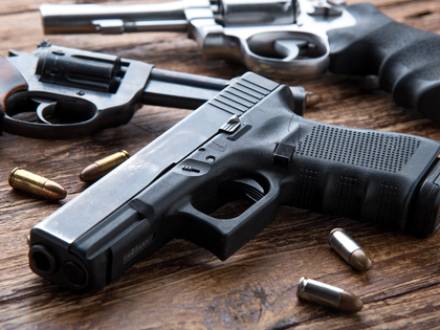 Serving Denton County Since 1992 | 6021 Morriss Rd., Suite 101, Flower Mound, TX, 75028
Serving Denton County Since 1992 | 6021 Morriss Rd., Suite 101, Flower Mound, TX, 75028

Probate and Guns: How Firearms Are Inherited in Texas
 When someone passes away in Texas, whether they had a will or not, their personal belongings are likely to go through the probate process before being distributed to their beneficiaries. This can include money, real estate, vehicles, and personal belongings like jewelry, household items, collections, and firearms. When guns are involved in probate, things can get more complicated.
When someone passes away in Texas, whether they had a will or not, their personal belongings are likely to go through the probate process before being distributed to their beneficiaries. This can include money, real estate, vehicles, and personal belongings like jewelry, household items, collections, and firearms. When guns are involved in probate, things can get more complicated.
Inheriting a firearm involves not just state probate laws (Title 2, Subtitle F, Section 256.001), but also federal gun laws, licensing requirements, and transfer restrictions. If you are an executor or beneficiary dealing with firearms during an estate probate, it is important to understand the legal ramifications regarding who can and cannot legally inherit a firearm. A Flower Mound, TX probate attorney can help you sift through the legal requirements surrounding guns and probate.
The Basics of Texas Probate and Firearms
If the decedent left an estate plan, personal property is subject to the legal process of distributing his or her assets following probate. If there is no will, all property belonging to the decedent will be inventoried, valued, and then distributed to heirs under Texas intestacy laws. Some personal property may be exempt from creditor claims and set aside for the family. When a will exists, the executor will create an inventory of the decedent’s personal property and determine the value of that property.
Once all debts and claims against the estate have been settled, the remaining property is distributed to the beneficiaries named in the will. Since Texas is a community property state, property acquired during the marriage is equally owned by both spouses, which can impact how personal property is divided. Executors in Texas have specific responsibilities regarding firearms during the probate process.
The firearms must be inventoried, cataloging each by make, model, serial number, and condition. Firearms regulated under the National Firearms Act, like suppressors or machine guns, require special identification. Ownership and legal status must be verified, which involves checking registration. Unregistered or prohibited firearms may need to be surrendered or lawfully sold. Unauthorized access to the firearms must be prevented during probate.
Who Can Legally Inherit a Firearm in Texas?
Generally, anyone who is legally permitted to possess a firearm under state and federal law can inherit one. Prohibited persons include anyone convicted of a felony, a person with a history of domestic violence, those with certain mental conditions, individuals who are not in the United States legally, and individuals under the age of 18.
The executor or administrator of the estate is responsible for ensuring that beneficiaries can legally possess a firearm. While Texas does not require background checks for private transfers of firearms (unless the firearm is a handgun) between non-prohibited persons within the state, if the firearm is being transferred from another state, federal law may require a background check.
Transferring Firearms Through Probate
There is no state gun registry, and private sellers are not required to require background checks or even keep records of firearm sales, except for handguns. For handguns, a background check may be required. The executor must file an ATF Form 5 (5320.5) Application for Tax Exempt Transfer and Registration of Firearm. The executor acts as transferor on the form, signing on behalf of the decedent. Documentation of the executor’s appointment, the death certificate, will (if present), and any other supporting documentation must be provided. Beneficiaries may need to provide fingerprints for NFA items.
If the executor must sell the firearms because the beneficiaries are prohibited from gun ownership, ATF Form 4 (5320.4), Application for Tax Paid Transfer and Registration of Firearm, must be filed. The executor acts as the transferor, providing the required documents. If unregistered firearms exist in jurisdictions where registration is required, the executor may arrange for a lawful sale or surrender the firearms to law enforcement.
Contact a Denton County, TX Probate Lawyer
A knowledgeable Flower Mound, TX probate attorney from Colbert Law Group PLLC can help ensure all firearm transfers are legal, safe, and in compliance with state and federal laws. Attorney Colbert previously served as an administrative law judge and as a tribal judge for the Chickasaw Indian Nation. Call 972-724-3338 to schedule your initial attorney consultation.





